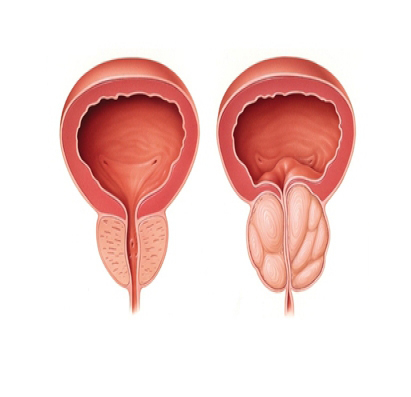Why Jeevandeep Ayurveda for treating “Prostate Enlargement”?
- Helps you cure Prostate Enlargement with the herb that reduces the pain and inflammation.
- Helps to prevent the vitiation of Vata and kapa doshas.
- Helps to maintain the body’s maintenance from inflammation.
- Ingredient used helps to provide relief from urination problems.
Prostate Enlargement
 Benign prostatic hyperplasia (BPH), often known as prostate gland enlargement, is a common disorder in elderly men. An enlarged prostate gland can produce unpleasant urinary symptoms, such as obstructing urine passage out of the bladder. It can also create difficulties with the bladder, urinary system, or kidneys.
Benign prostatic hyperplasia (BPH), often known as prostate gland enlargement, is a common disorder in elderly men. An enlarged prostate gland can produce unpleasant urinary symptoms, such as obstructing urine passage out of the bladder. It can also create difficulties with the bladder, urinary system, or kidneys.
As a man matures, his prostate goes through two major growth stages. The first is when the prostate doubles in size throughout puberty. The second stage of development begins at the age of 25 and lasts for the rest of a man's life. The second growth phase is frequently associated with benign prostatic hyperplasia.
As the prostate grows in size, it pushes on and compresses the urethra. The bladder's wall thickens. The bladder may eventually weaken and lose its capacity to completely empty, leaving some pee in the bladder. Many of the issues connected with benign prostatic hyperplasia are caused by urethral constriction and urine retention (the inability to completely empty the bladder). Medication, minimally invasive therapy, and surgery are all viable treatments for prostate gland enlargement.
Why Choose Jeevandeep Ayurveda
31
YEARS OF EXPERIENCE
180
HERBAL PRODUCTS
27000
PATIENT TREATED
The reason of benign prostatic hyperplasia is unknown; nevertheless, it primarily affects elderly men. Men who had their testicles removed before puberty do not develop benign prostatic hyperplasia. As a result, some experts suggest that age and testicular factors may contribute to benign prostatic hyperplasia.
Men generate testosterone, a male hormone, and trace quantities of oestrogen, a feminine hormone, throughout their lives. The quantity of active testosterone in men's blood declines as they age, leaving a larger proportion of oestrogen. According to scientific evidence, benign prostatic hyperplasia occurs because a larger proportion of oestrogen in the prostate promotes the action of chemicals that encourage prostate cell growth.
Another explanation revolves around dihydrotestosterone (DHT), a male hormone involved in prostate development and growth. According to several studies, even as blood testosterone levels fall, elderly men continue to manufacture and accumulate significant quantities of DHT in the prostate. This DHT buildup may drive prostate cells to grow more. Men who do not make DHT do not get benign prostatic hyperplasia, according to researchers.
- Urination eight or more times per day is considered urinary frequency.
- Urinary Urgency—the inability to postpone peeing difficulty commencing urine stream a weak or interrupted urine stream leaking at the conclusion of urination.
- Nocturia—frequent urination during sleeping urine retention.
- Urinary Incontinence—the unintentional loss of pee discomfort after ejaculation or during urination urine with an odd hue or odor.
Why one should not delay Treatment of “Prostate Enlargement”?
- Infection of the urinary tract.
- Prostate inflammatory disease (prostatitis).
- Urethral constriction (urethral stricture).
- Scarring in the bladder and neck caused by prior surgery.
- Stones in the bladder or kidney.
- Issues with the nerves that regulate the bladder.
- Prostate and bladder cancer.



